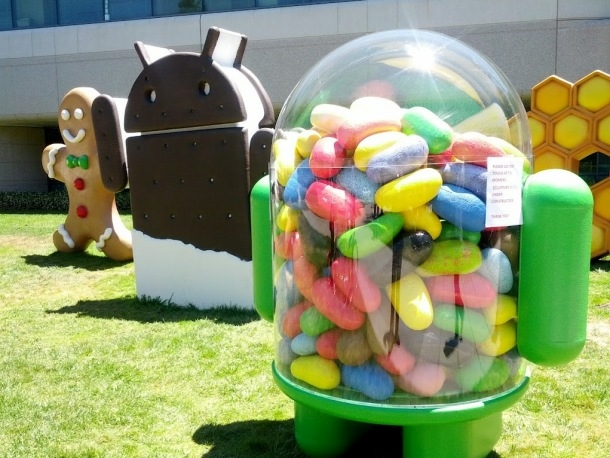Android 'Jelly Bean' 4.1 launches with its sights set on Siri and developers

Google has officially unveiled Android 'Jelly Bean' 4.1, taking on Apple's Siri with enhanced voice-driven search and a personal assistant feature called Google Now.

Android Jelly Bean will debut on Google's own Nexus 7 tablet, and promises better voice-driven search to take on Apple's Siri. Image credit: Google
Jelly Bean will debut on the Asus-made Nexus 7 tablet — also announced at Google I/O on Wednesday — and will start rolling out to the Galaxy Nexus and Nexus S smartphones and Motorola Xoom tablet in mid-July. In addition to the Siri-like features, the update introduces a significantly enhanced notifications system and security features for developers.
"Today's smart devices still rely on you to do pretty much everything — that is, until now," Android chief Andy Rubin said in a blog post. "Google Now is a new feature that gets you just the right information at just the right time. It tells you today's weather before you start your day, how much traffic to expect before you leave for work, or your favourite team's score as they're playing. There's no digging required: cards appear at the moment you need them most."
Jelly Bean's enhanced search draws on the Knowledge Graph functionality added to Google Search in May. The Knowledge Graph is a significant advance in semantic search that makes context much more important when calculating results.
Google is so confident in the viability of the Knowledge Graph that the voice search in Jelly Bean will usually attempt to return one results 'card' showing key facts about the search result. However, that will be accompanied below by a list of further results.
Android's notifications system has received a boost, becoming far more dynamic and interactive. People will be able to initiate phone calls directly from a missed-call notification. Plus, developers will be able create 'actions' for their apps' newly-expandable notifications — allowing the user to 'like' something directly from the notifications menu, for example.
Google Play, the company's iTunes rival, got a couple of updates in Wednesday's announcements too. The platform now includes magazines and TV shows, and it offers up movies for sale as well as for rental. In a bid to encourage uptake of Google Play, the £159 Nexus 7 comes with a £15 voucher for the store.
Developer tools
One of the key announcements at Google I/O was the arrival of the Android platform development kit (PDK), which will be given to hardware makers a few months before each update to the mobile OS. This is intended to reduce Android fragmentation, as it will make it easier for manufacturers to update their own customised version of the operating system more quickly, so customers can in turn update their phones or tablets sooner.
Google has also addressed another frequently-cited concern of Android developers, namely people copying their apps without paying.
"From Jelly Bean and forward, paid apps in Google Play are encrypted with a device-specific key before they are delivered and stored on the device," the company wrote in a developer blog post. "We know you work hard building your apps. We work hard to protect your investment."
Jelly Bean also comes with new APIs for accessibility services, making it easier for developers to integrate gesture-based commands for the visually-impaired. Other new APIs target functionality such as network bandwidth management and low-level media codec access.
In a move that could prove useful to both users and developers, Google has updated the Play store so that app updates no longer require the fresh downloading of the app's entire installation package (APK). Instead, the new 'smart app update' will only download the part of the APK that has changed, saving on bandwidth and battery.
According to Google, there are now more than a million new Android device activations each day.